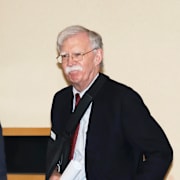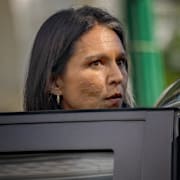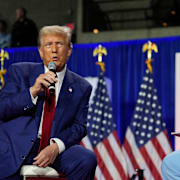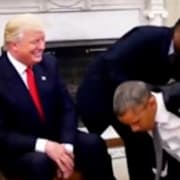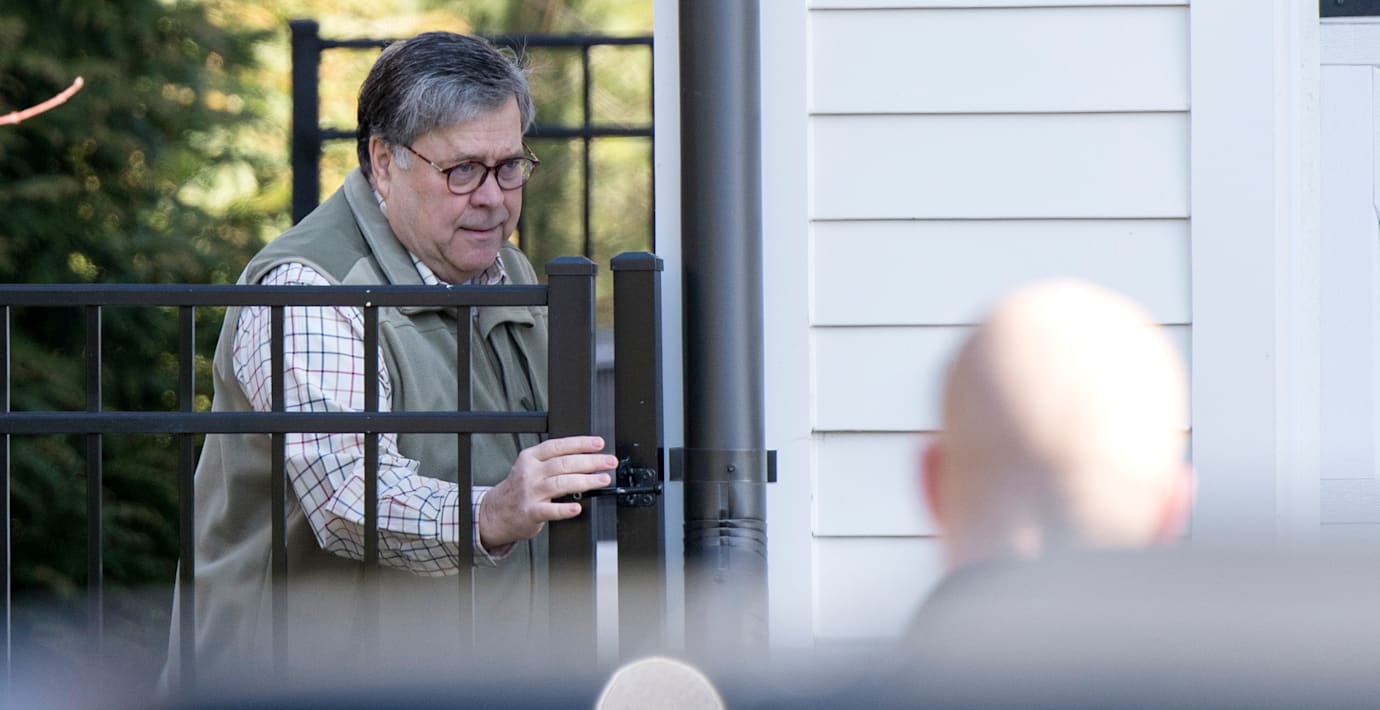
Utskott röstar om stämning – för att få hela rapporten
Representanthusets juridiska utskott trappar upp sina försök att få ta del av den särskilde utredaren Robert Mullers Rysslandsutredning i sin helhet, skriver Reuters.
Justitieminister William Barr planerar att släppa en maskad kopia på den nästan 400-sidor långa utredningen tidigast i mitten av april. Men Jerrold Nadler, ordförande för representanthusets juridiska utskott, och andra toppdemokrater kräver att politiker ska få ta del av rapporten i sin helhet utan maskning. Barr har fått tills i morgon på sig att släppa rapporten.
Utskottet planerar att träffas på onsdag för att rösta huruvida man ska genomföra stämningar för att få ut rapporten.
bakgrund
Rysslandsutredningen (2017–2019)
Wikipedia (en)
The Special Counsel investigation of 2017 to 2019 (also referred to as the Mueller probe, Mueller report, Mueller investigation, and Russia investigation) was a United States law enforcement and counterintelligence investigation of the Russian government's efforts to interfere in the 2016 presidential election. According to its authorizing document which was signed by Deputy Attorney General Rod Rosenstein on May 17, 2017, the investigation's scope included the allegation that there were links or coordination between Donald Trump's presidential campaign and the Russian government as well as "any matters that arose or may arise directly from the investigation". The scope of the investigation also included potential obstruction of justice by Trump and others. Conducted by the Department of Justice Special Counsel's Office headed by Robert Mueller, a Republican and former Director of the Federal Bureau of Investigation (FBI), the Special Counsel investigation began eight days after President Trump dismissed FBI director James Comey, who was leading existing FBI investigations since July 2016 into links between Trump associates and Russian officials. Following Comey's firing, over 130 Democratic lawmakers in Congress called for the appointment of a special counsel, while the FBI began investigating Trump for obstruction of justice. The special counsel's office took over both these investigations from the FBI.The investigation resulted in dozens of indictments for federal crimes and at least eight guilty pleas or convictions. In August 2018, former Trump campaign chairman Paul Manafort was found guilty on eight felony counts of financial crimes in the United States District Court for the Eastern District of Virginia and a month later pleaded guilty to conspiracy to defraud the United States and obstruct justice in a plea bargain for his full cooperation with prosecutors. The investigation also led to Trump's former National Security Advisor Michael Flynn pleading guilty to making false statements to the FBI about his discussions of sanctions with the Russian ambassador during the Trump campaign, and was required to be a cooperating witness in the investigations. Mueller further secured guilty pleas from Manafort's business partner Rick Gates, Dutch attorney Alex van der Zwaan, former Trump campaign adviser George Papadopoulos, lobbyist W. Samuel Patten and Richard Pinedo. Except Van der Zwaan, all have become cooperating witnesses for investigators. In February 2018, Mueller indicted 13 Russian citizens and three Russian entities, most notably the Internet Research Agency and in June 2018 added an indictment of Konstantin Kilimnik, Manafort's business partner, to whom he had passed internal campaign polling data. In July 2018, 12 members of the Russian GRU cyber espionage group known as Fancy Bear, responsible for the 2016 DNC email hacking, were indicted. Investigations into Trump's personal lawyer Michael Cohen were referred to the Attorney's office of the Southern District of New York. Longtime Trump advisor Roger Stone was indicted on seven charges in January 2019.While initially enjoying bipartisan support, the Special Counsel investigation became subject to criticism by Trump and his supporters. Trump has criticized people or groups related to the investigation over 1,000 times. On January 30, 2019, an FBI court filing revealed that someone located in Russia was also attempting to discredit the Special Counsel investigation through Twitter. Russian people have also sent falsified documents to reporters. Some allegations of investigators' misconduct have been raised and were almost immediately debunked. Trump and his supporters criticized the cost of the investigation. By December 2018, the investigation had cost approximately $25 million while gaining approximately $48 million through asset forfeitures.The Special Counsel's office concluded its investigation and submitted the final report to Attorney General William Barr on March 22, 2019. Barr, at Trump's nomination, had become Attorney General on February 14, 2019, gaining oversight of the investigation from Trump-appointed Acting Attorney General Matthew Whitaker, who had himself assumed oversight from Deputy Attorney General Rod Rosenstein on November 7, 2018, with the resignation of Attorney General Jeff Sessions (who had recused from the investigation). Both Barr and Whitaker had been critical of the Mueller investigation before their appointments.
On March 24, Attorney General Barr sent a four-page letter to Congress regarding the special counsel's findings regarding Russian interference and obstruction of justice. Barr said that on the question of Russian interference in the election, Mueller detailed two ways in which Russia attempted to influence the election in Trump's favor, but "did not establish that members of the Trump Campaign conspired or coordinated with the Russian government in its election interference activities." On the question of obstruction of justice, Barr said no conclusion was reached by the special counsel, noting that Mueller wrote "while this report does not conclude that the President committed a crime, it also does not exonerate him." Per Justice Department policy, the possible case of obstruction was sent to the attorney general and deputy attorney general for review; Barr and Rosenstein concluded that it could not be proven in a court of law.
Omni är politiskt obundna och oberoende. Vi strävar efter att ge fler perspektiv på nyheterna. Har du frågor eller synpunkter kring vår rapportering? Kontakta redaktionen
